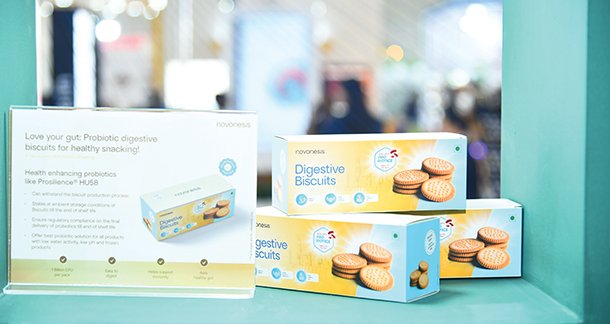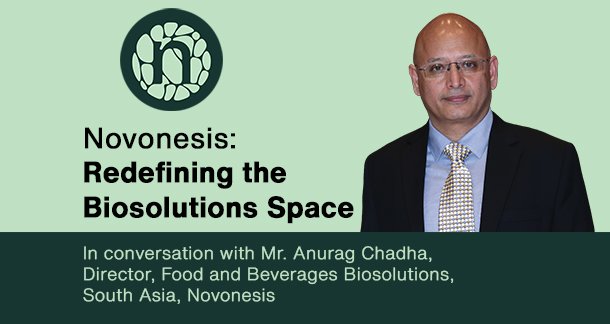In conversation with Mr. Anurag Chadha, Director, Food and Beverages Biosolutions, South Asia, Novonesis, he elaborates on the biosolutions that are transforming the F&B Space, their take on the Global food systems, and their work towards bridging the gaps in the industry.
Q1. How has the trajectory of your company been so far and what are the lessons that you have cultivated over the years?
Novonesis is less than a year old but is the result of two legacy companies (Novozymes and Chr. Hansen) with over a century of experience, coming together to build upon their respective strengths, including within the Food and Beverage segment. The portfolios of the two companies are complementary when it comes to F&B, with Chr. Hansen’s experience in probiotics and cultures, and Novozymes’ experience with enzymes.
At Novonesis, we believe that this new beginning creates new opportunities for finding synergies and innovating by staying true to both legacy companies’ strategy of ‘excelling in its core’.
Q2. Can you tell us how Novonesis’ bio solutions are transforming the food & beverage Industry?
Our key focus areas in relation to food consumption is shelf life, sustainability, and health. Our biosolutions for the food and beverages industry, as showcased during Fi 2024 encompass the baking, dairy, functional foods, and fermented beverages segments. Our biosolutions – enzymes, cultures, microbes, proteins, and more play a role in making food healthier, while also making businesses profitable and sustainable. These solutions can help food last longer, reduce wastage, and provide simultaneously healthier and tastier alternatives for the conscious producer and consumer.

Q3. What are the pain points in the Food & Beverage Industry that Novonesis is tapping into?
Our showcase at Fi 2024 offered some examples of some of the production and consumption pain points that Novonesis can address for the food and beverages industry.
To give some examples, biosolutions can help bake softer, and better textured bread that stays fresh throughout its shelf-life. It can also help in cost optimization for producers by replacing gluten while maintaining taste. When it comes to dairy and cheese, our probiotic strains can help improve gut health and immunity, and also offer clean label solutions. In the biscuits segment, our biosolutions can help with fat reduction in the product while maintaining similar taste and texture.
Our functional foods solutions include Vitamin K2-7 incorporated candies for stronger bones and healthier heart claims. We also have probiotic solutions that goes well in chocolates and can help support reducing mental stress and promote better sleep. Novonesis is, in fact the first to be able to make such a claim in a decadent chocolate category.

Q4. How do your solutions contribute to better overall food production and what are the challenges Novonesis is addressing in Global Food Systems?
The biosolutions that Novonesis offer work towards holistically addressing the challenges faced by Global Food Systems, from the farm to the fork. At the farm level, our solutions which includes specialized enzymes and microorganisms can increase yield in food production, reduce energy, water, and chemical consumption in food production, reduce pesticides in plants, and the need for antibiotics in livestock production.
At the level of the fork, our F&B biosolutions can contribute towards healthier diets, enable plant-based protein products, reduce chemical ingredients, increase shelf life, and reduce food wastage.
Q5. What are your plans for the future? How do you plan on redefining the biosolutions space in the F&B Industry?
We are committed to transforming food systems, with an aim to address the protein requirements for a growing population and expand our solutions to foods consumed on a daily basis across regions. Along with addressing the need for more food from less, our efforts will continue towards making food safer and healthier by systematic reduction on use of chemical ingredients, and inclusion of ‘better-for-you’ products in everyday life. We also aim to work towards the bioremediation of toxicants and ensure reduced food waste throughout the value chain.



